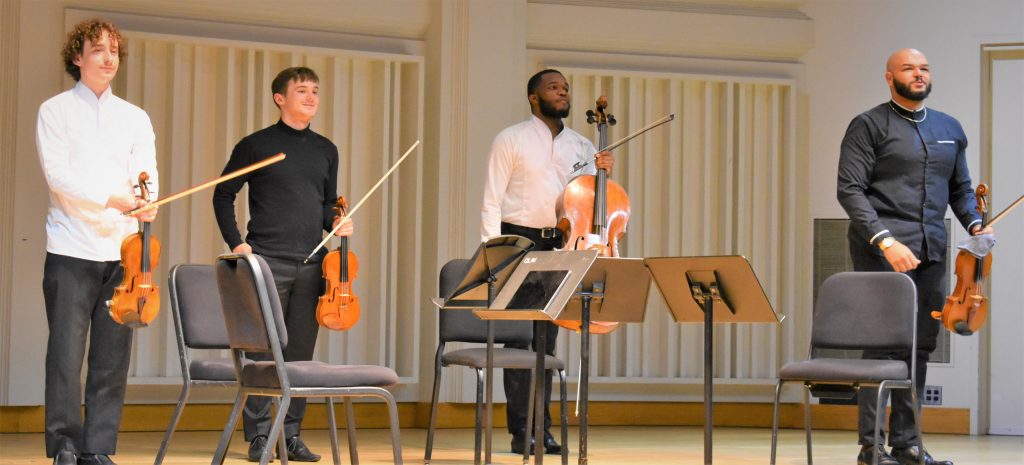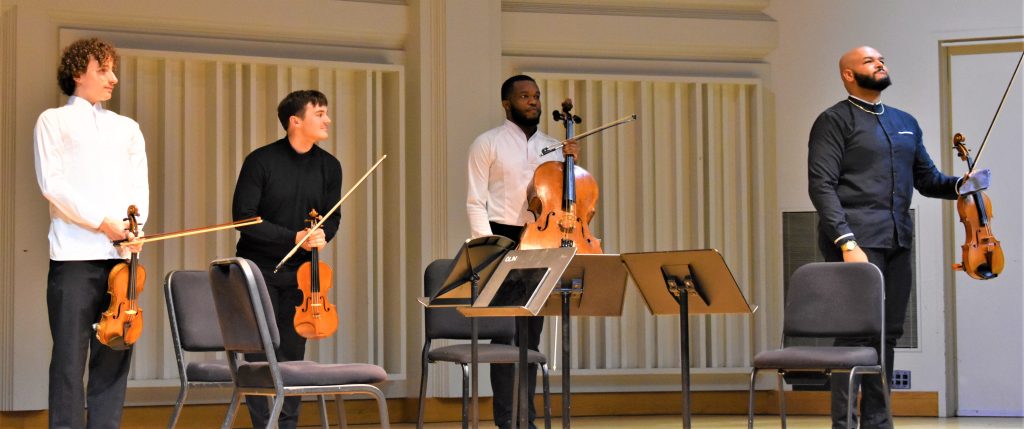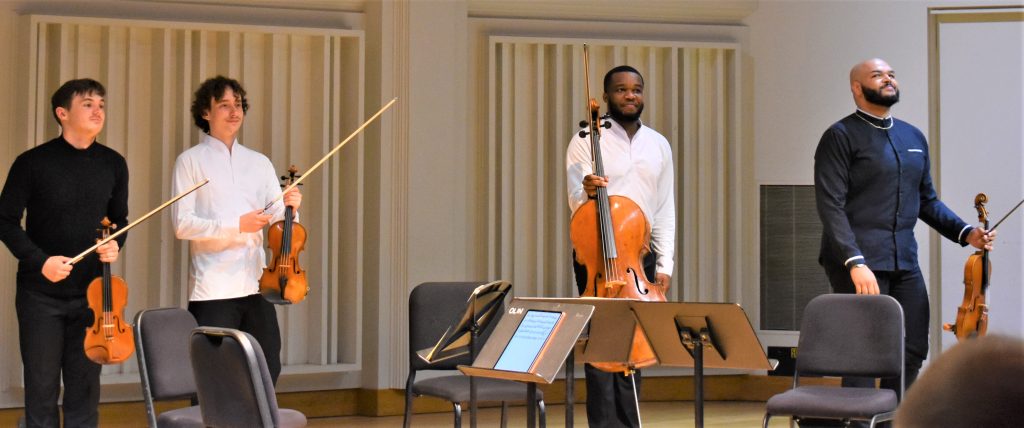
by Kevin T McEneaney
The Isidore Quartet, named after famed violinist Isidore Cohen of the Julliard Quartet, they offered a varied program last Saturday night. These four Julliard graduates were the joint recipients of a 2023 Avery Fisher Career Grant. Last year they won first prize at the 14th Banff International String Quartet Competition which featured an unusual test of group musicianship: in a single day nine quartets were to play the same work by Canadian composer Dinuk Wijeratne (b. 1978), The Disappearance of Lisa Gherardini. Inspired by the legendary theft of Leonardo da Vinci’s Mona Lisa from the Paris Louvre Museum in 1911, Wijerante (a conductor, pianist, and composer) created a contemporary sound-scape work of program music for the competition. Born in Sri Lanka, he studied under composer John Corigliano at Julliard, then moved to Ottawa.
The Isidore Quartet won this competition with their exquisite interpretation which they played at Olin Hall last Saturday night, which opened with an arresting, suspenseful theme delineating skullduggery. I was startled and quite pleased by the minimalist high notes of Phoenix Avalon’s violin, then the low, creepy notes emitted by Joshua McClendon’s cello which present a grounded portrait of the earthy woman whose smile has become an epic enigma; these musicians can really play! Once the inside job theft was completed by the former museum employee who had hidden in a closet, second movement violins screeched like sirens. I thought the third movement to be the most interesting: the question of what this lady might think of the whole caper from Leonardo to today….

String Quartet No. 2, Awakening (2012) by Billy Childs (jazz pianist and classical composer who is a five-time Grammy Award winner) was first performed by the Ying quartet. Opening with a twelve-tone canvas, this vibrant minimalist work reminded me of the paintings of Juan Miro, full of sound squiggles and segues floating on shifting rhythmic bass. Short moments of silence carried invisible notes of care, as this was about a possibly fatal event in the life of the composer’s wife. The plangent sorrow of the second movement drew my sympathy as violist Devin Moore was formidable in this work that pushed the boundaries of what a viola can do and elongated one’s sense of time as waiting…. And the viola leads us to the recovery room for a conversational duet between husband (cello) and wife (violin). This optimistic reversal resonates with a thrilling joy as elements of the first and second movement reappear as integrated recovery of physical health. I found this work thrilling, charming, and even wished they would replay it immediately!
The manuscript of Felix Mendelssohn’s String Quartet, Op 44, No. 3, E-flat Major is dated February 6, 1838; the next day Cécile gave birth to Carl. The recording I have of this work is slightly disappointing. The Gewandhaus Quartet appears not to know what to do with the final movement of the work, yet The Isadore Quartet certainly knew what to do.
While Adrian Steele on first violin impressively excelled, so did the whole quartet. The conclusion of the second movement appears to recollect happy moments of childhood. The sorrow-laden third movement may register the death of someone dear to the composer. The third movement sounds like it celebrates the coming birth of Mendelssohn’s first child with an ecstasy beyond the bounds of music!
The Isidore Quartet, composed of four men in their early twenties, are on their road to making musical history with the impact of unified precision!
